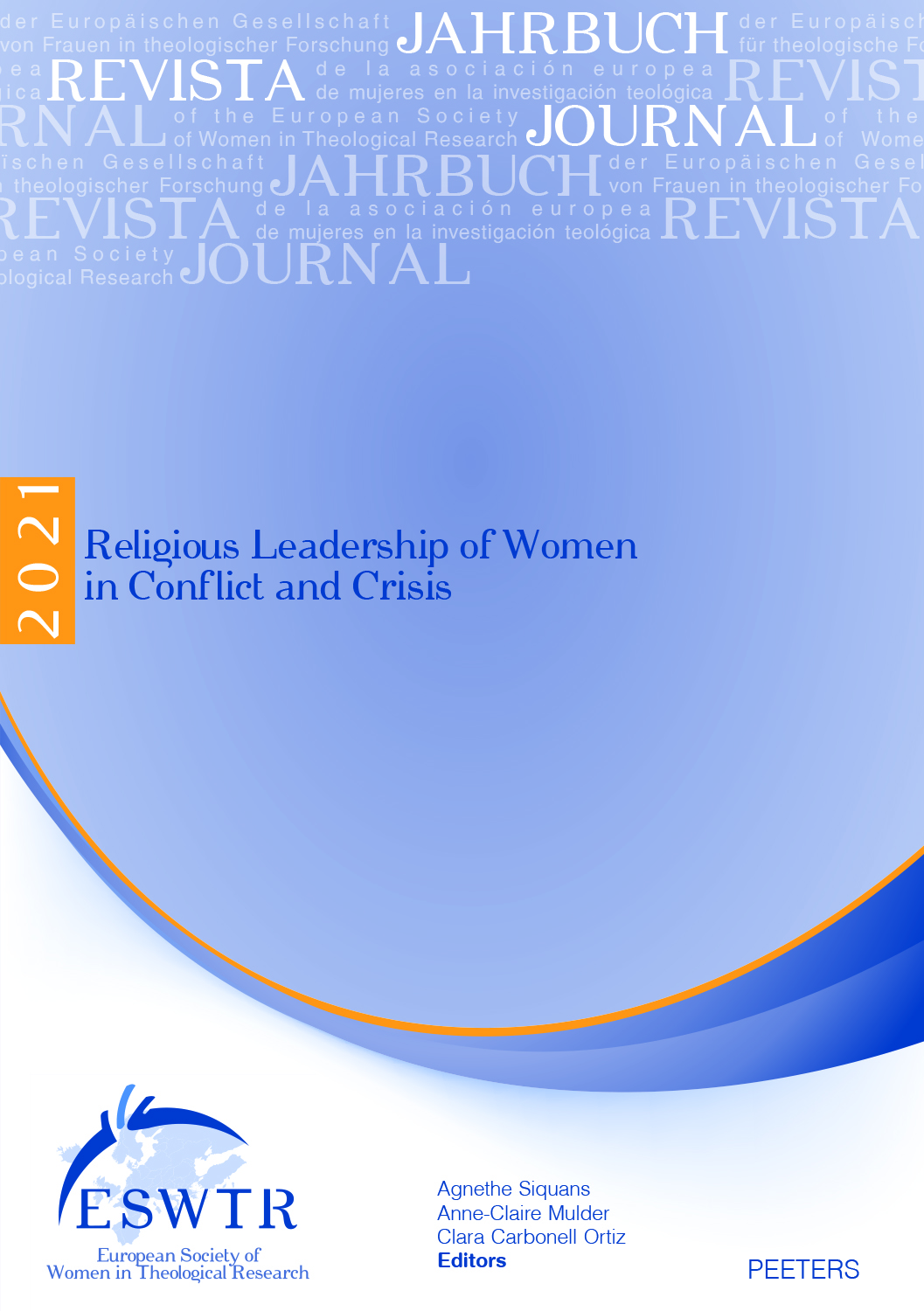 previous article in this issue previous article in this issue | next article in this issue  |

Preview first page |
Document Details : Title: Von Schräubchen, Pfeilern und Brücken... Subtitle: Dichterinnen und Theologinnen mittel- und osteuropäischer Kontexte ins Wort gebracht Author(s): ADAMIAK, Elżbieta Journal: Journal of the European Society of Women in Theological Research Volume: 14 Date: 2006 Pages: 11-26 DOI: 10.2143/ESWTR.14.0.2019303 Abstract : This article has been constructed on three “pillars”, namely three poems by Wisława Szymborska, Kazimiera Iłłakowiczówna and Zuzanna Ginczanka. It deals with the deconstruction and reconstruction of women’s identities in connection with cultural clichées, with the involvement of intellectuals in relation to the workers’ protests against the imposition of Communist power, and with borderline experiences – of being constantly exposed to the risk of dying – from the point of view of a Polish woman of Jewish descent during the second World War. The search of Polish women poets of the 20th century for their own identity is interpreted theologically as a source of the (painful) history of women which can point the way for the art of bridge building between women theologians from different contexts. Cet article repose sur trois “piliers”, c’est-à-dire trois poèmes de Wisława Szymborska, Kazimiera Iłłakowiczówna et Zuzanna Ginczanka. Il aborde le sujet de la déconstruction et de la reconstruction de l’identité des femmes en relation avec les clichés culturels, avec l’engagement des intellectuels solidaires des manifestations ouvrières contre l’autoritarisme du régime communiste, et avec des expériences extrêmes – comme d’être constamment exposées au risque de mourir. Il est écrit à partir de la perspective d’une femme polonaise d’origine juive, pendant la deuxième guerre mondiale. La recherche de leur propre identité, menée par les poétesses polonaises du 20e siècle, est interprété d’un point de vue théologique comme l’origine (douloureuse) de l’histoire des femmes s’orientant vers l’art de créer des ponts entre théologiennes vivant dans différents contextes. |
 |


